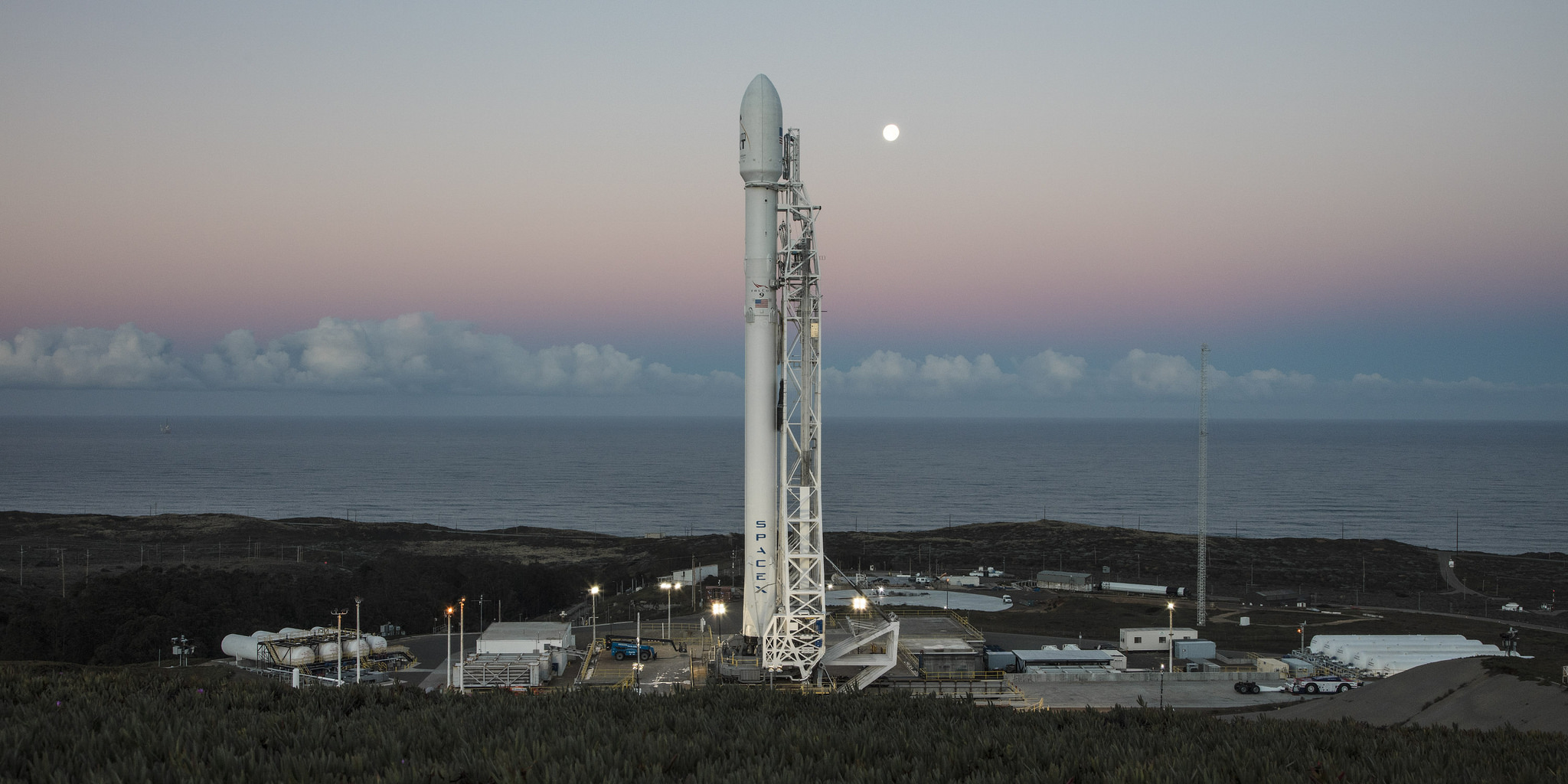Russia is going to develop a reusable rocket that can compete with Falcon 9

Falcon 9 on the launch pad
Soon the development of a reusable middle class rocket will begin in the Russian Federation, which is positioned as a “response” to the Falcon 9 carrier created by Ilon Mask. The rocket is planned to be unified with the one-time "Soyuz-5" , which will open up the possibility of launching the "domestic Falcon" from Baikonur, Vostochny, as well as the floating cosmodrome in the Pacific under the Sea Launch program.
The RSC Energia and the Progress Rocket and Space Center will develop the novelty, Izvestia writes . According to experts, the creation of a reusable carrier is extremely important for Russia, this will allow the country to maintain its position in the launch services market.
It should be noted that at the same time with a reusable launch vehicle will be developed its one-time version. The sketch design of Soyuz-5 was completed late last month. In the coming days, developers are going to provide all the technical documentation to Roskosmos. The carrier is needed as a replacement for the Zenith rocket, which was previously produced jointly by Russia and Ukraine.
Representatives of the Rocket and Space Corporation (RSC) Energia stated that the Roskosmos terms of reference for the development of Soyuz-5 does not provide for the multiple use of this rocket, as well as its individual elements. “In the near future, on an initiative basis, issues of reusable use of the first stage, as the most expensive part of the carrier, will be considered,” the press service of the company said. "Based on the results, decisions will be made to continue the work."
The reusable Soyuz-5 will be led by specialists from RSC Energia and the Progress rocket and space center.
According to representatives of the project, the rocket will make an independent landing in the same way as the Falcon 9 does. True, the team of domestic experts plans to calculate other options, including the use of a parachute descent system. In “Energia” they are going to carry out the maximum unification of the carrier with the basic one-time version. This is necessary so that both versions of the missiles could be launched from the same launch complexes, including Baikonur, Vostochny, and the Sea Launch launch platform in the Pacific Ocean.
According to the director general of RSC Energia, Vladimir Solntsev, the main factor to be taken into account in the development will be the economic feasibility of creating a reusable rocket. It is necessary to determine the cost of preparing the steps after the flight for subsequent launches. It is still extremely important to calculate the capacity of the rocket, since up to one third of the loaded fuel volume must remain in the tanks for independent landing.
“We are now doing the“ side ”development work in order to keep up with the world trend. Let's look at the expediency. The main criterion in the development - how much is the output of a kilogram of cargo to a low earth orbit. Technically, we are ready for this, ”said Vladimir Solntsev.
Ivan Moiseev, the scientific director of the Space Policy Institute, believes that creating reusable carriers is promising and cost-effective. “One of the most expensive rocket components is the engines. If we plant a stage or in any other way save the engines, this gives 10–20% savings on each start. For the carrier, this is a serious savings. In addition, the appearance of a Russian rocket with a reusable stage will protect our share in the global space launch market, shaken after the accidents of recent years, ”he said.
In the US, reusable rockets are developed by two companies. The first is Blue Origin, created by Jeff Bezos. She conducted several successful tests of her single-stage carrier. True, the reusable Blue Origin rocket is intended for space tourism, so it should not rise higher than 100 km from the Earth’s surface. The second company is SpaceX Ilona Mask. This company uses its rockets for commercial launches. This year, SpaceX has already held 16 successful launches of the Falcon 9, and three of them were carried out using steps previously returned to Earth.
According to some reports, Falcon 9 belongs to about a fifth of the international market for space launches, including both government and commercial orders. Roscosmos also controls about 20% of this market.
All Articles